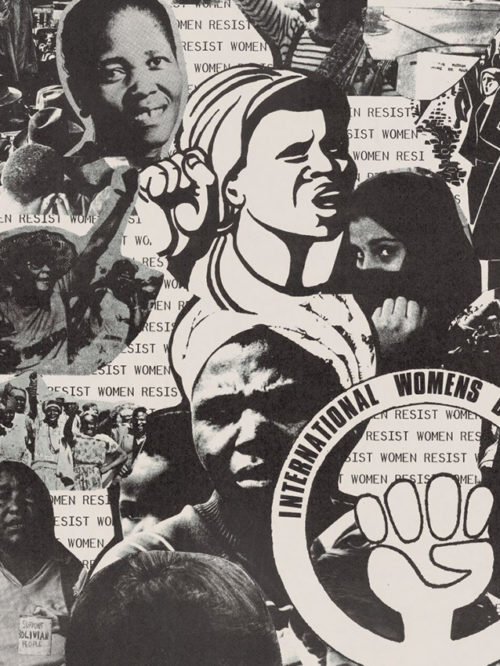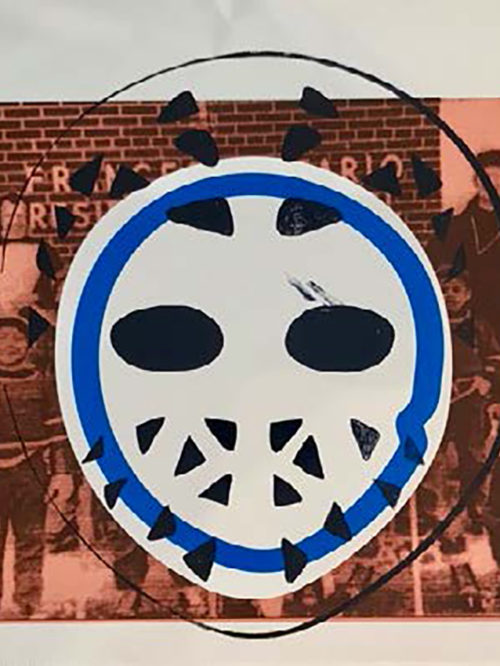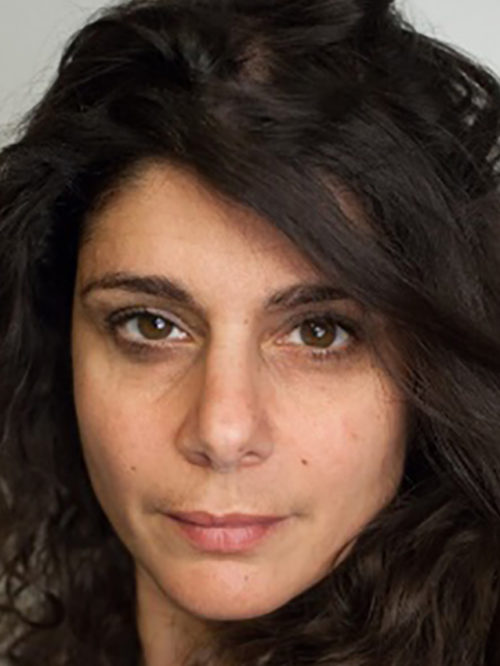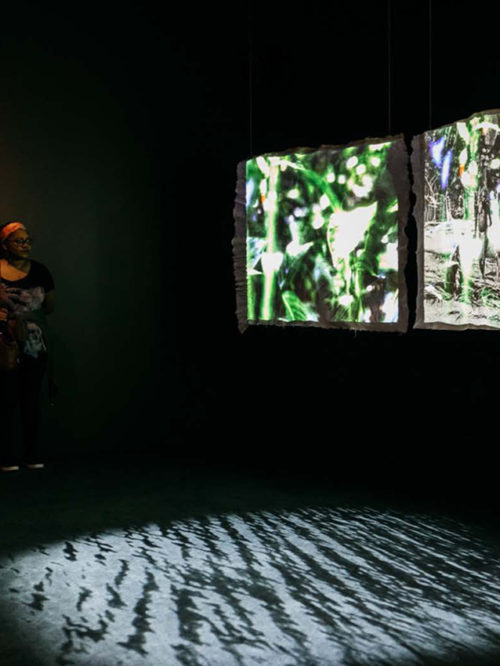Compagnie GAKOEKOE
with Gaëtan Noussouglo, Eustache Kamouna, Anani Gbeteglo, Roger Kodjo Atikpo, Marcel Djondo and Florisse Adjanohoun
Les Racontottes
Lomé (Togo), 2020
The “racontottes” are little stories told at evening gatherings around the fire or under the palaver tree. The six storytellers, who have much experience in performing on the African and European stages, bring stories to life. Spinning and turning, jumping back and forth, these stories take up the German invasion of Togo in 1884. Here, history becomes a jumble of anecdotes and jokes.
The storytellers narrate resistance to the Germans in many forms: mental, physical and moral. Some anecdotes come from the narrators’ families, others were inspired by history books. In the production, a still shot was chosen to symbolise the gaze of the wise man sitting apart and watching the “little” people debate.
The story of German presence in Togo begins with a protectorate treaty signed with a village unknown to the Togolese. This treaty signalled the beginning of the invasion with its punishments and forced labour. “Togoland” was born. People resisted using any means at hand. But how could the invaders be defeated if the locals had never seen firearms before? These stories find the humorous side of terrible situations, forming a both amusing and tragic portrayal of colonial life and creating disturbing parallels to official historiography.
Gakoekoe Theatre Company
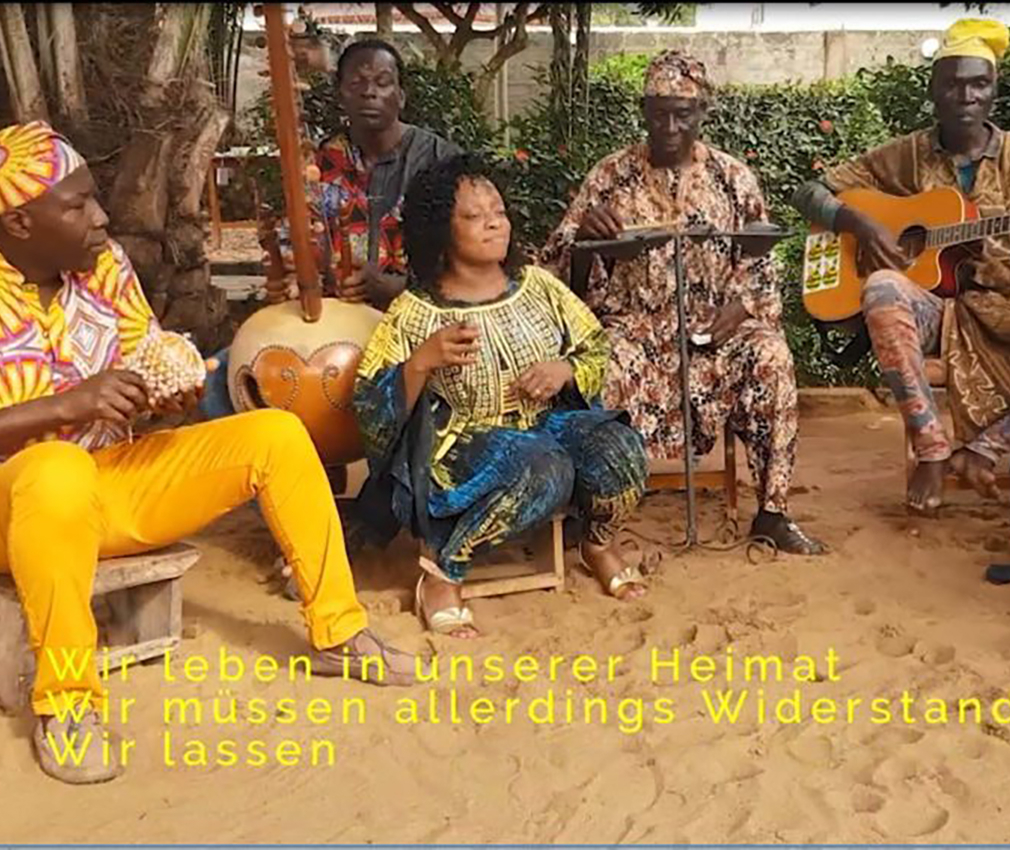
1. The Protectorate Treaty and the Resistance of Agotimé Batoumé
Narrated by Gaëtan Noussouglo
Duration: 06:44 min.
“Once, a boat full of white people appeared in the sea, to the great astonishment of the local population. Not only their skin was white, they were also wearing white hats on their heads!”
On the Germans invasion of Togo; on language, resistance and cruelty.
2. German Colonisation and the Resistance of the Vodu Priestess
Narrated by Roger Kodjo Atikpo
Duration: 07:06 Min.
“The people from Bremen forbade the worship of such gods and forced people to convert to Christianity. (…) The pastor and the parishioners ran out of the church. Since this incident, few people came to church. Many preferred to stick to their tradition rather than convert.”
A tale about the Bremen mission and its difficulties in getting the population to convert – also, about how the farting of the Vodu priestess Tassi Nonie derailed the Christianisation of the villagers.
3. The Demystification of the German Colonist
Narrated by Marcel Djondo
Duration: 09:26 min.
“What does a white man’s excrement look like? That’s what the people want to know.”
A story about a “huge fat German’s” excrement, which helped the villagers realise Germans were only human.
4. Konkomba Resistance and the Cut Thumbs
Narrated by Gaëtan Noussouglo
Duration: 08:36 min.
“When the whistle sounded, the Konkomba shot their arrows at the Germans. Many Germans were hit and died.”
A story about Konkomba fighters whose thumbs were cut off by the German colonial rulers so they could no longer use their bows and arrows. We also learn how their weapons ended up in German museums.
5. “Why does the railway stop at Blitta?”
Narrated by Eustache Bowokabati Kamouna
Duration: 05:13 min.
“The Germans promised that the Kaiser would come bearing gifts. But he didn’t. Which is why the railway lines stopped in Blitta.”
A story about the construction of a railway line in Togo, the forced labour involved and the ensuing resistance.
6. “Dying in resistance is not shameful”
Narrated by Anani Gbétéglo
Duration: 04:45 min.
“We don’t let death discourage us. No matter what the white man says. No matter if the white man keeps on murdering. We will not be discouraged even by death, however hard it is.”
A story of resistance and encouragement.
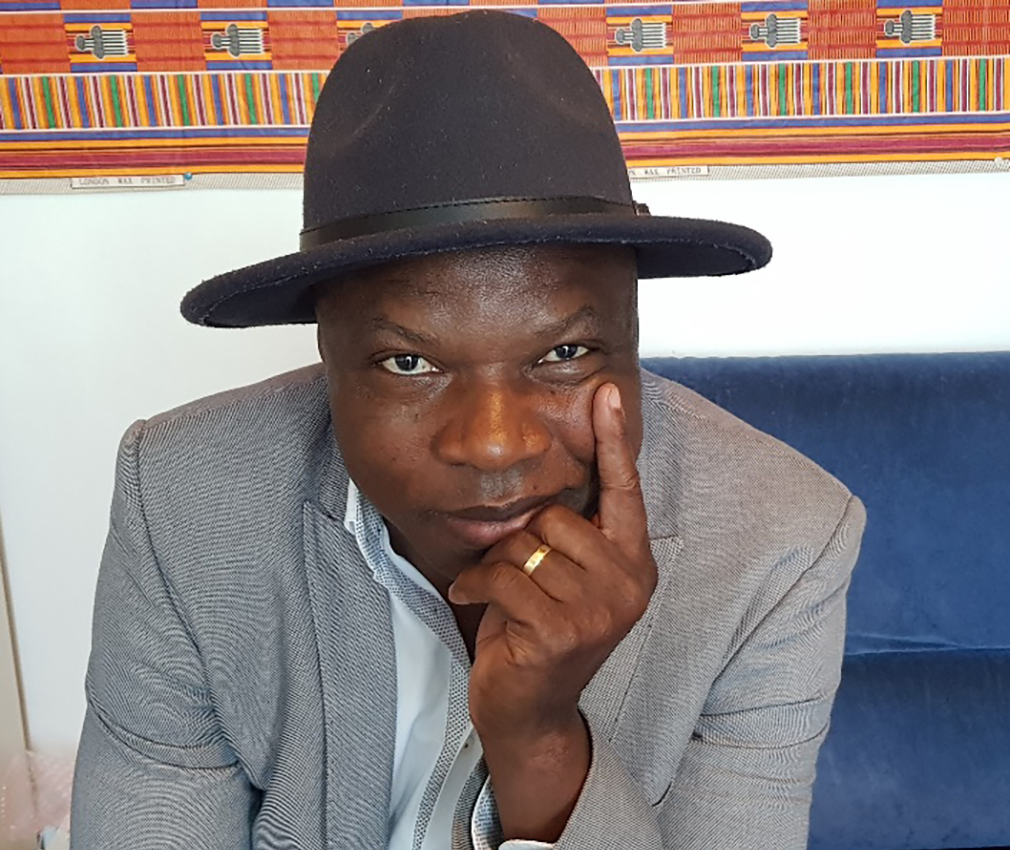
Gaëtan Noussouglo (lives and works in Lomé, Togo and Paris, France) is a Togolese director, actor, performer and storyteller. He has taken part in a number of festivals in West Africa, France, the Netherlands, Italy, Switzerland and South Korea. Since 2003, he has been working with Cie Gakokoé, Théâtre de l’Unité and many other companies in France. He performs in museums in Europe, was responsible for the programming of Assahoun’s FESTHEF and directed the Filbleu festival / atelier in Togo. In 2007, he created the website “Togocultures”.
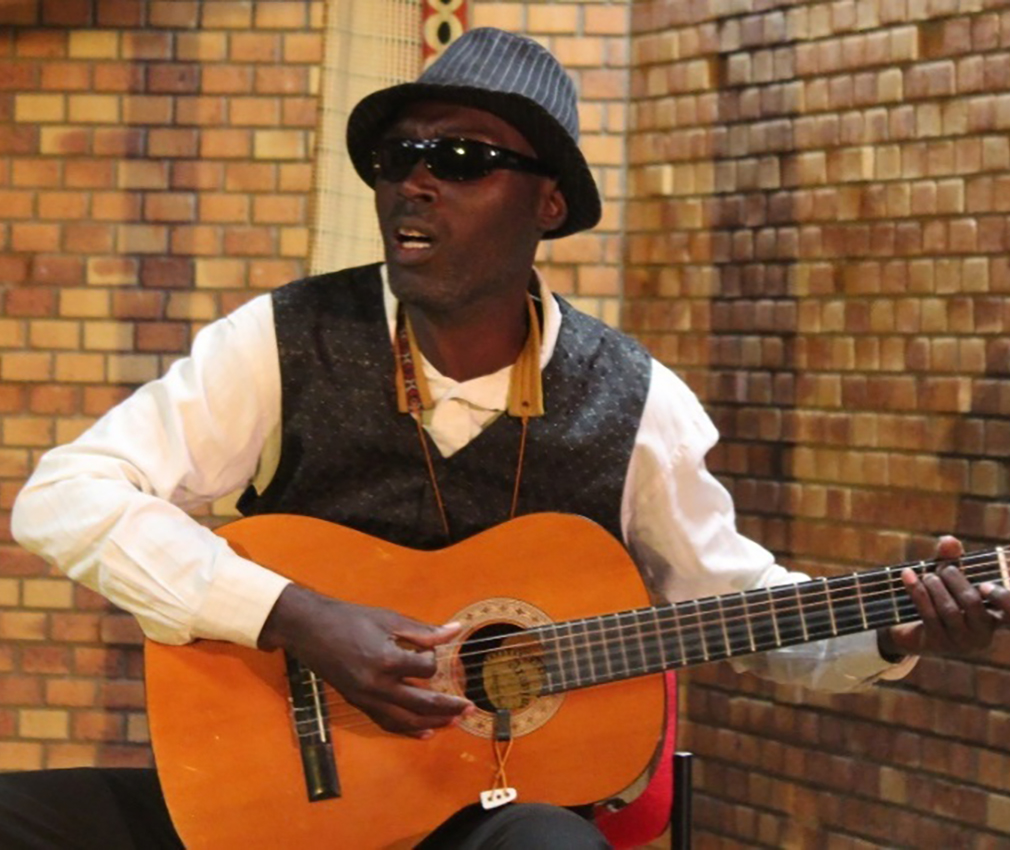
Eustache Bowokabati Kamouna (born in 1970 in Lomé, Togo) is a storyteller, actor and musician. It is said that he was born with a guitar in his hand and a musical key drawn on his belly: of course, he decided to become a musician. His music bridges genres, mixing reggae and R&B with African instruments. Kamouna has taken part in a number of international festivals; in 2010, he joined Béno Sanvee’s company ZITIC. Today he has four albums to his credit.
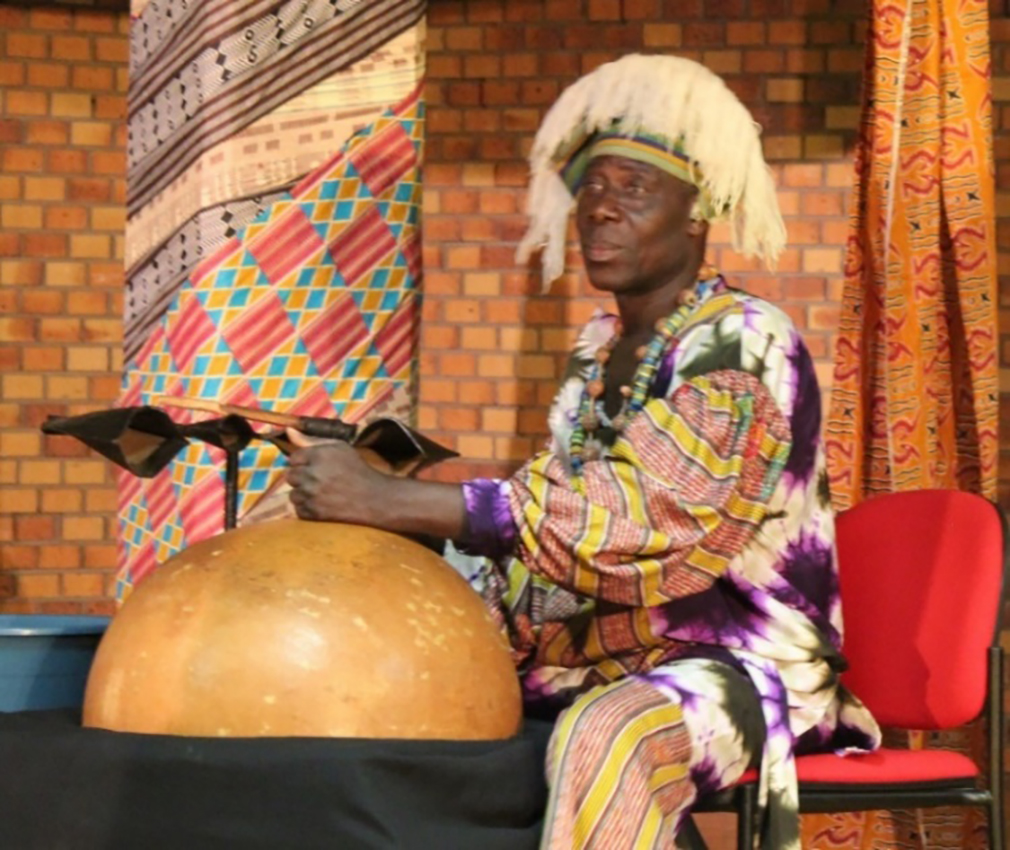
Anani Gbeteglo (born in 1957 in Togo) is a drummer born in 1957 into a Togo family in which Vodou rituals were a part of everyday life. The rhythms and dances of his ancestors inspired him as a small child, so he taught himself to play the drums. With the Zitic company from Béno Sanvee, he toured storytelling festivals all over the world. In 1989, he won a gold medal at the first Jeux de la Francophonie in Morocco with the show Et la femme découvreit l’homme (“And the woman discovered the man”), choreographed by the Togolese choreographer Ass Ayigah of the Ayigafrik company.
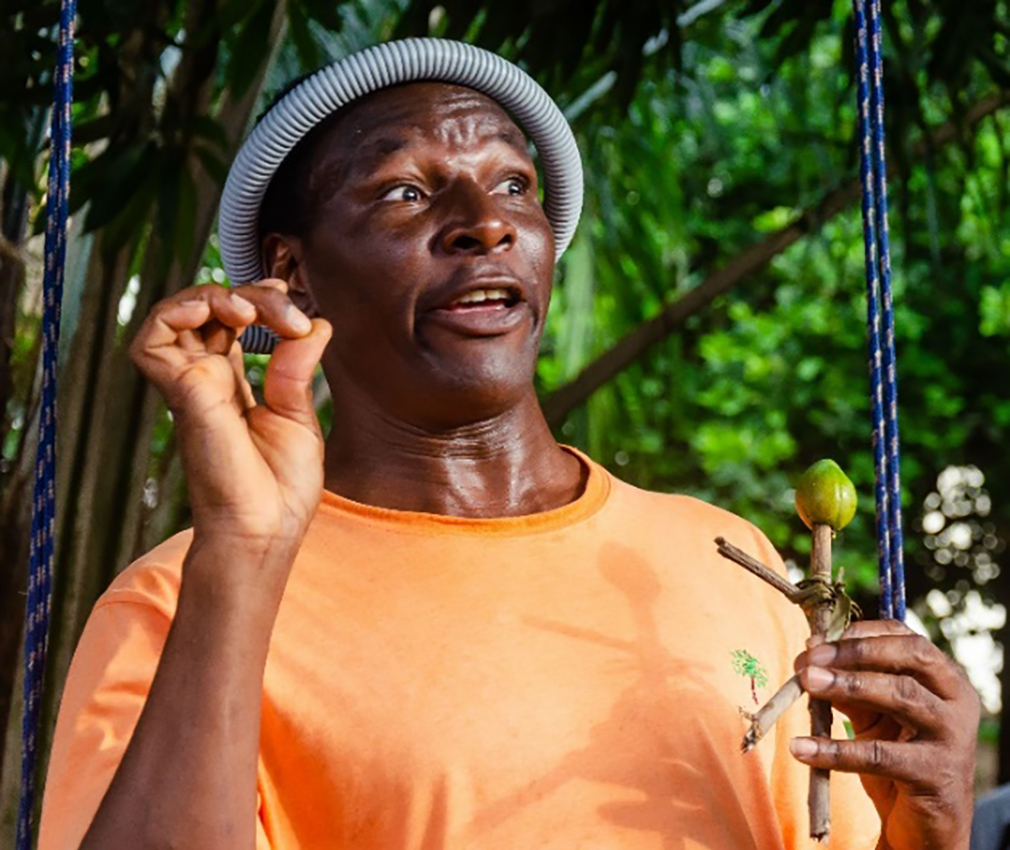
Roger Atikpo (born in 1972 in Lomé, Togo / lives and works in Togo, France and Belgium) is a Togolese actor with an international career in the world of storytelling and theatre, who also plays the kora (a kind of double-bridge-harp-lute). He performed in Togo with ENAL and the Atelier Théâtre de Lomé, among others, before founding his own company, Compagnie Théâtre Aktion. His professional life as an independent artist is now divided between three countries: he has established a studio in Lomé in France; he works with the Jean Claude Berruti company and the Vladimir Steayert company in Belgium; and finally, he is at the disposal of Adama Traoré’s company Act Seven in Mali.
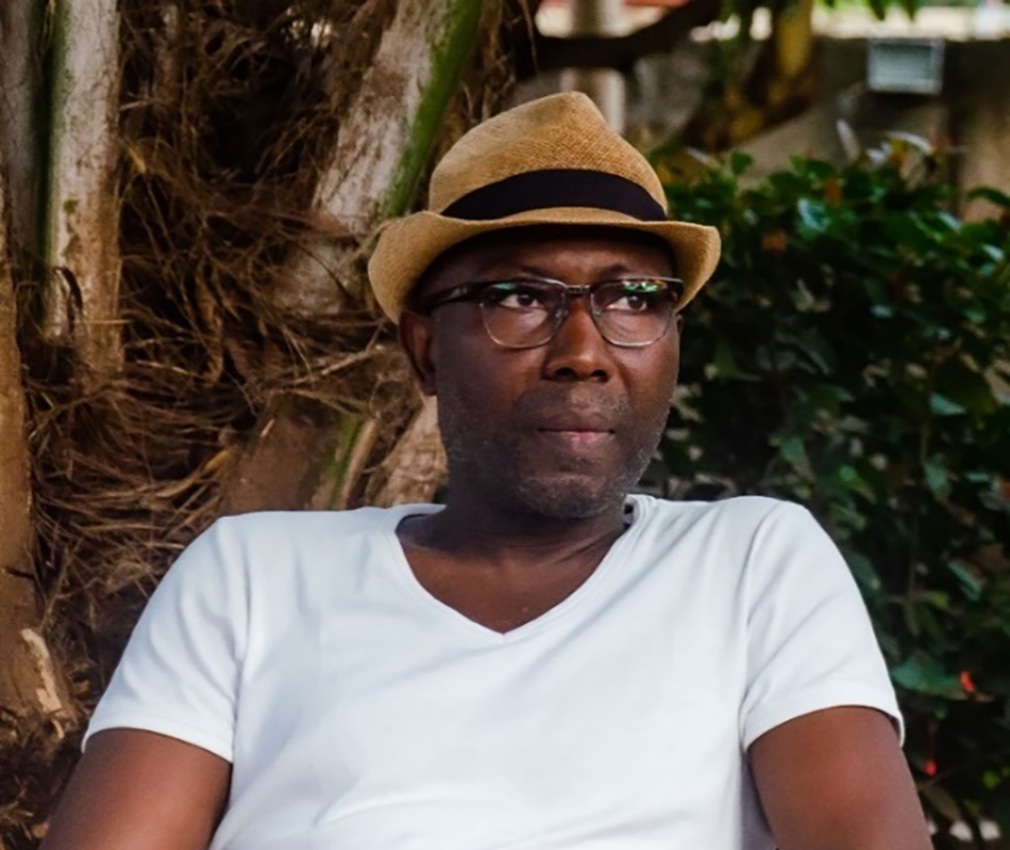
Marcel Kodjovi Djondo (born in Togo / lives and works in Montbéliard, France) is an actor, storyteller and director. He was born into a family of Vodou priests and priestesses in Togo and spent part of his childhood in Benin. As a child, he loved to listen “Fa” prophecies. This passion for words later led him to his career. Today, Marcel Djondo is the artistic director of the Gakokoé company in Montbéliard, France. He has worked with L’Illustre Famille Burattini, Michel Crespin and the Théâtre de l’Unité.
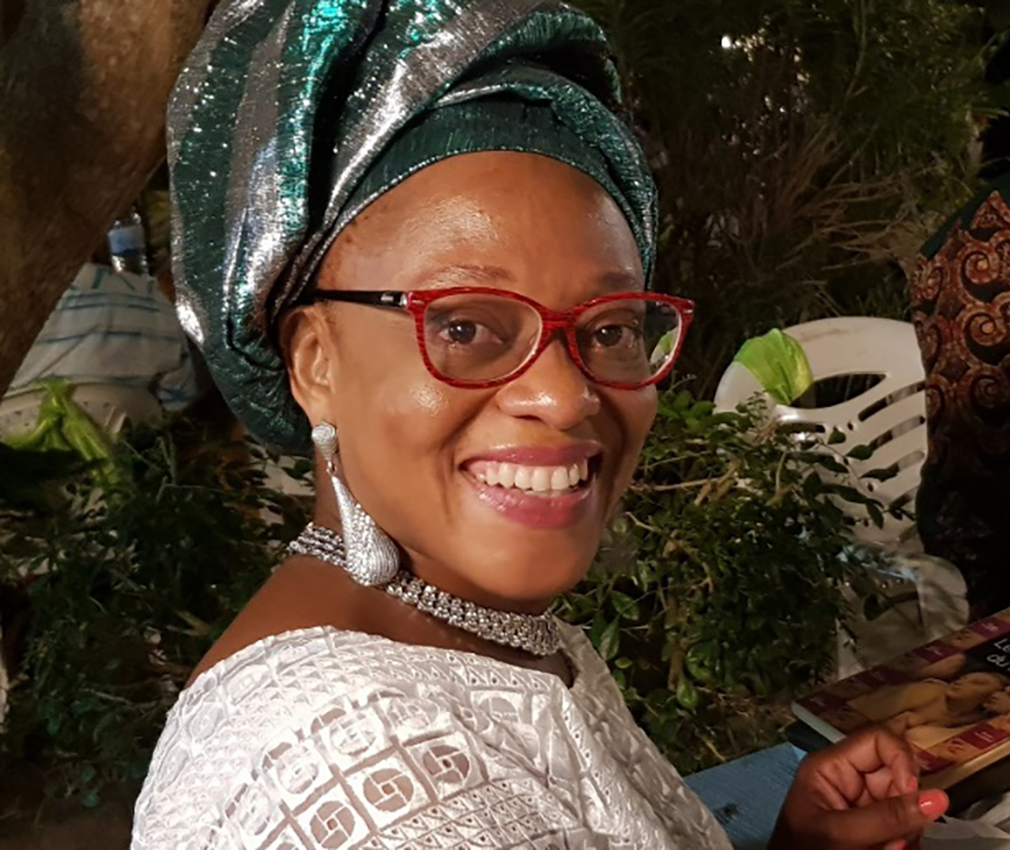
Florisse Adjanohoun (born in 1971 in Cotonou, Benin) is a Beninese actor, storyteller and writer. She has taken part in a great number of shows in Africa, Europe and the United States, winning many awards and prizes: Prix SEM Patrice TALON at ReCiCo 2019, Trophées Fitheb award 2018, Grand Prix Best Actress of Africa in Brazzaville 2013, CANAL + and UEMOA award for Best Female Interpretation in Clap Ivoire (Côte d’Ivoire) 2014 and 2012, and the award for Best Lyrics 1999 in Carthage (Tunisia) for her performance Atakoun.
Foto: © Fidèle Noussouglo


